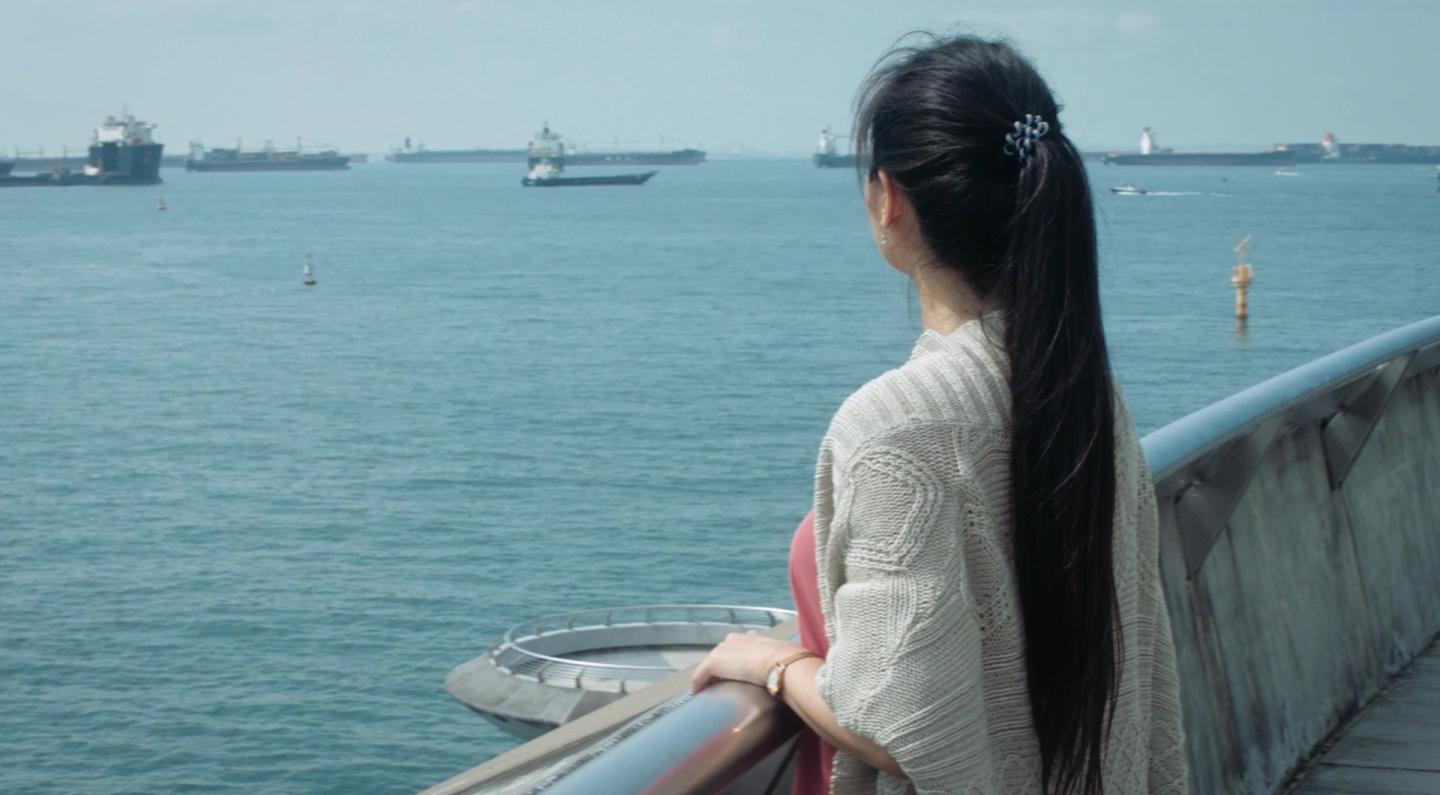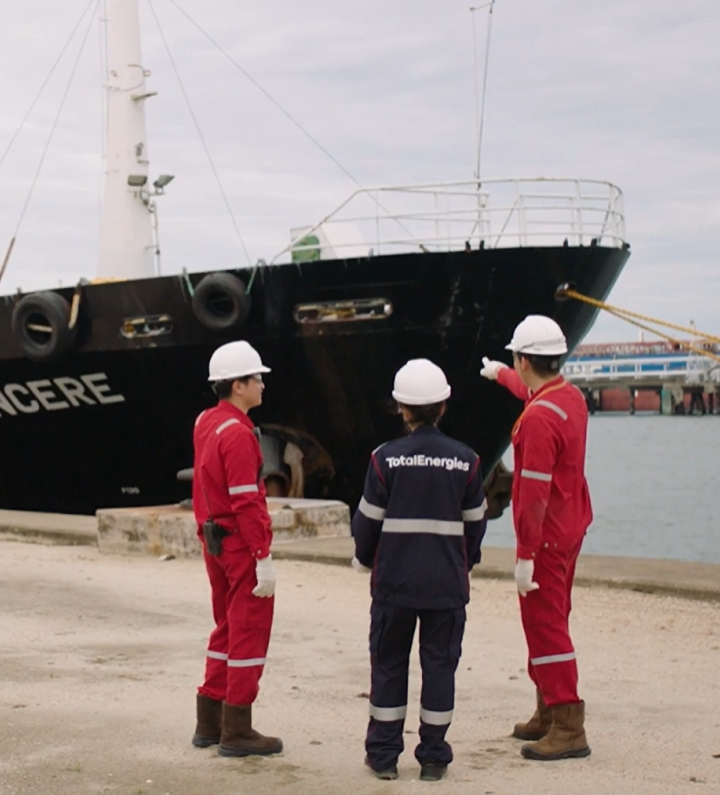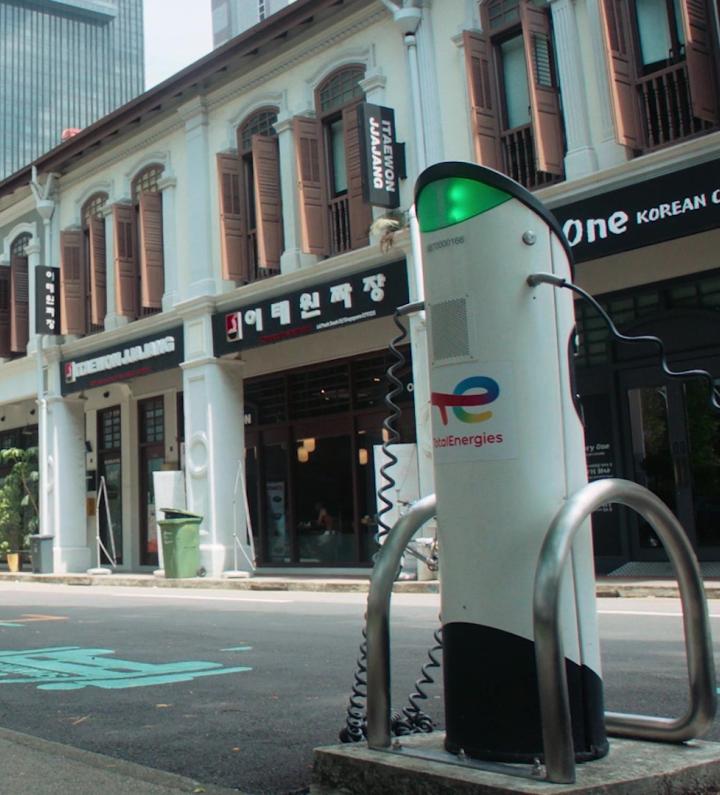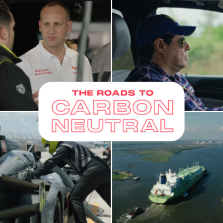The Roads to Carbon Neutral - Episode 4 - Singapore’s Sustainable Waves
The Roads to Carbon Neutral - Episode 4
Singapore’s Sustainable Waves
The Roads to Carbon Neutral
The third season of The Roads to Carbon Neutral program, in partnership with CNBC Catalyst, shares an inspiring and optimistic view of TotalEnergies’ role in our sustainable future globally through powerful, human-led and on-the-ground stories.
Throughout the series' eight episodes, discover the solutions and innovations making the transition to low-carbon energy a reality and helping us achieve a carbon-neutral future(1).
In this fourth episode, we set sail for Singapore. Through Xin-Fang Chua's testimony, discover how TotalEnergies is supporting the city-state in its sustainable development.
I love exploring Singapore.
My social media is a scrapbook capturing the beauty of Singapore.
When I'm out in the nature,especially looking at the sea,I get reminded that we are at the heart of the global trade.
Singapore is one of the busiest ports in the world and it connects us to the rest of the planet.
Singapore is coming together to tackle climate change and the sea is where I can contribute.
Life in Singapore is vibrant.
Green spaces have been my refuge from the frenzy of the city.
Singapore has become a leader in green innovation.
We are united by a kind of guardianship for our country and our ways of life.
The development of electric vehicles is a complex challenge throughout Asia, but TotalEnergies now operate the largest EV charging network in Singapore.
Singapore's Green Plan aims to have more than 60,000 charging stations nationwide by 2030.
The government dramatically increased carbon taxes.
Now rooftops all over the city are actually installed with solar panels.
At this lubricant blending plant, solar power covers 35% of the site's energy needs.
But at its core, Singapore is a maritime nation.
Singapore sells about one fifth of the world's marine fuel, it's one of our biggest decarbonisation challenges.
I'm championing and selling fuel alternatives that are vital in helping reduce marine transport emissions.
Marine biofuels are a solution towards decarbonisation.
We have been providing UCOME,made from used cooking oil that would otherwise be wasted.
Adoption to current vessels is easy too. Blended with existing fuels, there is no need for retrofitting on any vessel. LNG is known as liquefied natural gas.
It is also an alternative fuel that can be used today to reduce greenhouse gas emissions by up to 23% compared to other fossil fuels.
TotalEnergies and our partners have led the way with the Brassavola, one of the largest LNG bunker vessels in service here at the Port of Singapore.
We are also researching possible marine fuels of the future that can meet or exceed emissions regulations.
We are looking into new, sustainables like methanol and ammonia.
They will demand new technologies and modifications to current vessels,but the industry's challenge is to make it efficient and safe as a marine fuel to power a ship.
A lot of our customers today are having conversations and engagement
with us as an energy supplier.
And I'm optimist that we can support and encourage them through this energy transition.
I feel that Singaporeans are resilient, especially in this uncertain future, but we are already proving ourselves as leaders and pioneers in finding new solutions and innovations.
[TotalEnergies logo]
Supporting the shipping industry’s decarbonization
According to the International Energy Agency, the shipping industry generates nearly 3% of the world’s energy-related CO2 emissions. The sector is already strongly committed to reducing its carbon footprint. To help reduce these emissions, we have pleadged to supply liquefied natural gas (LNG), bio-LNG and biofuels to strategic bunkering hubs.
We also collaborate with partners from shipping industry coalitions and inter-industry R&D initiatives to shape the future market for decarbonized shipping fuels, including advanced biofuels, biomethane, and more ecofriendly synthetic methanol and ammonia.
I’m championing and selling fuel alternatives that are vital in helping reduce marine transport emissions. Marine biofuels are a solution towards decarbonisation.Xin-Fang Chua LNG & New Marine Fuels Bunker Trader
Solutions for a more sustainable city
Reinventing low-carbon energy involves the electrification of energy uses. In Singapore, we support the growth of electric mobility and develop distributed solar generation.
With a target of 100 GW of gross renewable electricity capacity by 2030, TotalEnergies would rank among the world’s top five providers of renewable energy (solar and wind). Our integration across the entire electricity value chain goes all the way to sales to end customers, with packages tailored to consumers and businesses. In 2030, our objective is to serve nearly 10 million consumers and sell 130 TWh. We also aim to reach more than 150,000 electric vehicle charge points in operation.
A lot of our customers today are having conversations and engagement with us as an energy supplier. And I'm optimist that we can support and encourage them through this energy transition.Xin-Fang Chua LNG & New Marine Fuels Bunker Trader
The Roads to Carbon Neutral
(1) TotalEnergies is committed to a balanced multi-energy strategy. Anchored on two pillars - hydrocarbons, particularly LNG, on the one hand, and electricity, the energy at the heart of the transition, on the other - the company is building a strong position to support its customers' energy transition. To find out more about our strategy: https://totalenergies.com/energy-transition.
(2) In partnership with Pavilion Energy.





















